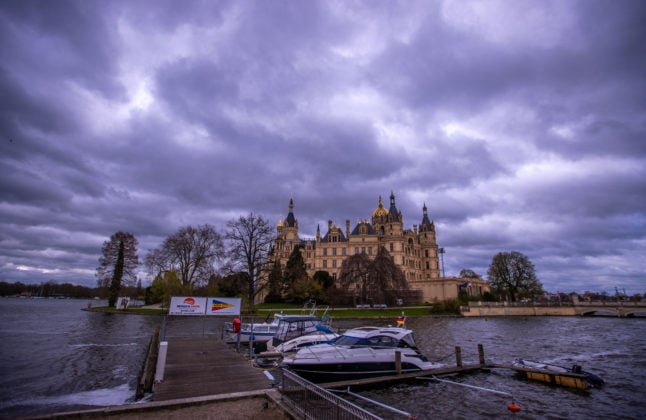It has only been a day since Mecklenburg-
Under the new legislation, only people who are fully vaccinated will be allowed to travel to the northern state, either for the day or to stay in a second home. People who have recovered from Covid-19 and also had their first dose of vaccine will be recognised as “fully vaccinated” as well as people who have had both doses of the vaccine, the government said.
READ ALSO: ‘Closer to normality’: German Bundestag to vote on easing Covid curbs for vaccinated people
However, since the majority of children in Germany haven’t yet been vaccinated – and aren’t in line for the vaccine for a number of weeks or even months – it appears that families with kids who want to visit the state will be forced to stay home or go elsewhere for the foreseeable future.
“If members of the close family are not fully vaccinated, the option to travel unfortunately does not apply,” a spokesperson for the Mecklenburg-Western Pomerania government told the regional Ostsee Zeitung.
‘Victims of the Mecklenburg second-home disaster’
The rules have already come under sharp criticism, particularly from second-home owners who have been desperately awaiting the chance to return to their properties on the coast.
One Berlin family who own a holiday home in the seaside town of Stralsund told the Ostsee Zeitung they were unable to travel even though three out of four of the family had been vaccinated.
“Our son is an election worker and has therefore already been vaccinated,” the father of the family, Peter K., told the newspaper.
“But our daughter is still too young to be vaccinated. That’s why we can’t enter the state after all – and we can’t leave them at home alone either.”
Referring to the state’s unusually strict rules on visiting second homes during the pandemic, he added: “We’re the victims of the Mecklenburg second-home disaster.”
A patchwork of Covid-19 regulations
Though Chancellor Angela Merkel has attempted to unify Covid-19 regulations across the country with the national emergency brake, there are early signs that states like Mecklenburg are already going their own way.
In recent days, the governments of a number of federal states have revealed plans to open for tourists once again – each with their own distinct rules for visitors. In Lower Saxony, for instance, those staying in a hotel will have to present daily negative tests, while Bavaria plans to gradually open tourist attractions only in areas with lower infection rates.
READ ALSO: When will tourism in Germany open up again?
German states were slammed by the federal government for their patchwork of internal travel rules at the beginning of the second wave last October, that saw some states ban people coming from some domestic areas.
Speaking in the state parliament on Wesdneday, Mecklenburg-Western Pomeria’s social minister Stefanie Drese said that children, young people and families were the government’s “highest priority”.
Children have been shown to have played a particularly large role in the spread of the virus during the third wave, Drese explained.
“Our goal is therefore to break the third wave quickly so that, in conjunction with the progressive vaccinations, we can take easing steps as quickly as possible – especially for children and young people,” she added.
“This is not a strategy to restrict freedom. It is a strategy to be able to give freedom again as quickly as possible.”



 Please whitelist us to continue reading.
Please whitelist us to continue reading.
Member comments